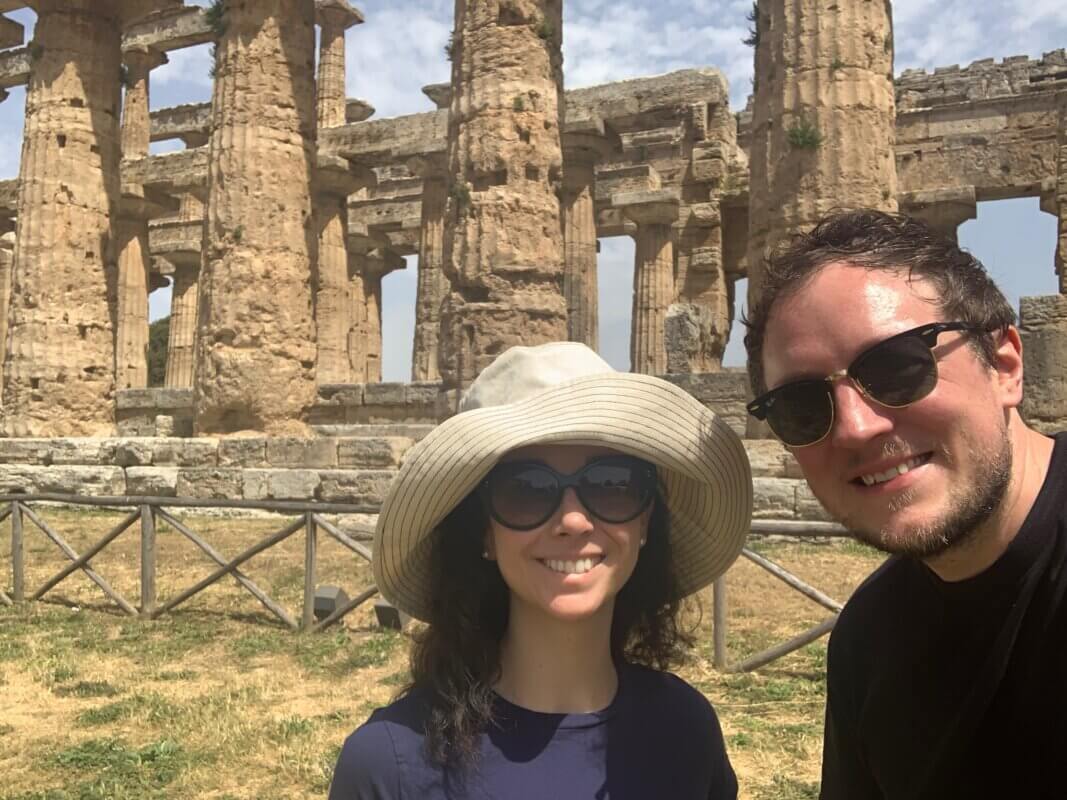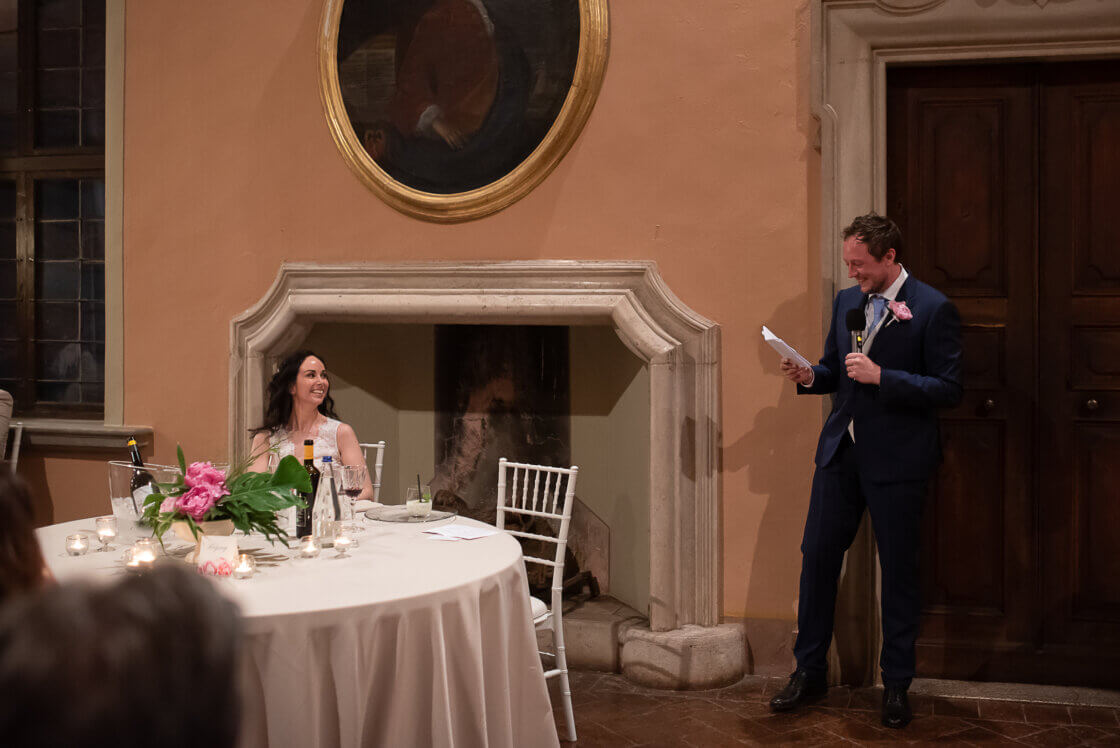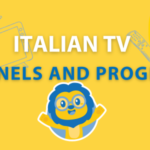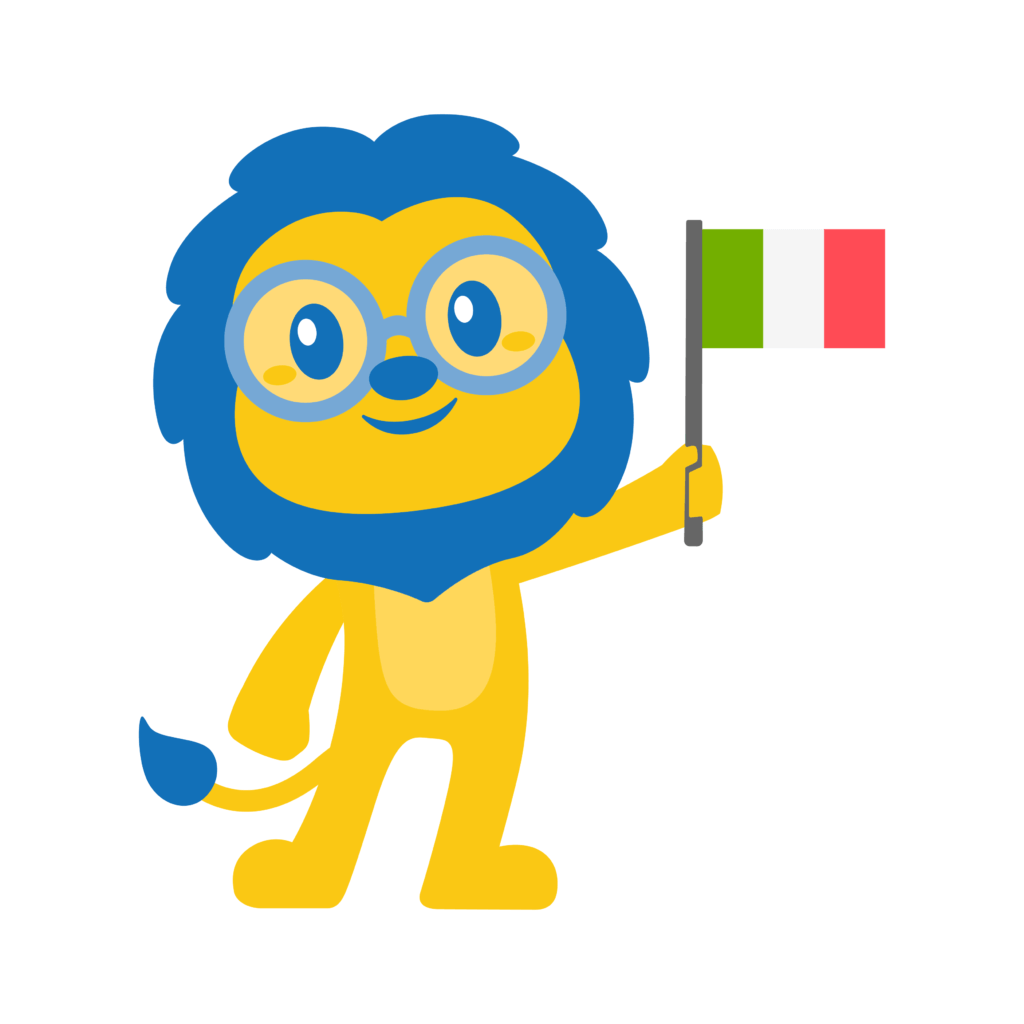How Long Does it Take to Learn Italian? My 1 Year Italian Journey
My Experience vs The Experts: How Long Does it Take to Learn Italian?

Learning a new language can be a deeply personal journey, but understanding the time investment it takes can help manage expectations and keep motivation strong.
When I first started learning Italian, I was feeling pretty optimistic – after all, how different can two languages from the same continent be?
Well, it turns out – pretty different!
💍 But that didn’t stop me. I’ve spent plenty of time with Italians and even married one! If that isn’t linguistic success, I’m not sure what is!
In this post, I’ll share insights from language experts, tips to learn Italian faster, and my own journey as a native English speaker toward conversational fluency in Italian.
I’ll also share what worked and what didn’t, so you don’t have to waste your time!
Table of Contents
How Long Do Experts Say It Takes?
How Similar is Italian to English?
My Personal Experience Learning Italian
How Long Do Experts Say It Takes to Learn Italian?
Before I even opened my very first Italian textbook, I went straight to Google to get an idea of how long it would take me to get to grips with the language.
The Foreign Service Institute (FSI) categorizes Italian as a Category I language for English speakers, estimating that proficiency requires 600-750 hours of study.
Theoretically, that breaks it down to about 24 weeks of classes – but as we know, stats are one thing, reality is another!
This timeframe considers consistent, focused practice. However, personal goals and study habits can greatly affect the actual time needed.
The Common European Framework of Reference for Languages (CEFR) also offers a guideline:
Basic User (A1/A2): 60-120 hours
Independent User (B1/B2): 180-300 hours
Proficient User (C1/C2): 400+ hours

Tips to Speed Up the Process
If you’re committed to learning Italian more quickly, here are some tips that helped me:
🌍 Immerse Yourself Daily – Consistency is key. Even 15-30 minutes a day adds up. I found ticking off my Italian time on a calendar kept me on track the most and the increasing number of X’s was as satisfying as a Duolingo streak!
💡 Use Spaced Repetition Systems (SRS) – Spaced repetition is by far the best brain hack I’ve found! Apps like Anki can use this system and test you on weaker words more frequently, meaning you can really target your efforts. I used this on my daily commute and got great results.
🗣️ Practice with Native Speakers – Finding a language partner or utilizing platforms like Flexi Classes gives you much-needed non-scripted practice. Chatting with native speakers brought me a lot of benefits- I was able to pick up on the most commonly used grammar patterns and phrases and I even picked up some highly useful Italian curse words!
Want to put yourself to the ultimate test? Give a speech in Italian! That’s exactly what I did for my wedding. It’s a good way to:
- Learn a lot of new vocab
- Practice it over and over and over and over…
- Get your level verified by natives
- Have a lot of fun

📝 Focus on Core Vocabulary – Italian shares much with English in core vocabulary. Concentrate on high-frequency words to make progress quickly. Sure it’s great to be able to discuss niche topics, but always prioritise the topics you’re interested in. For me that was an easy one- football and food!
📺 Watch Italian Movies and TV – Italian movies and news channels with subtitles improve listening skills and provide cultural context. One of my favourite hacks is watching my favourite Netflix shows with Italian voiceovers and English subs.
📲 Change Your Phone Settings to Italian – This is a super easy method that helps you passively pick up lots of Italian vocabulary Common terms like “settings” (impostazioni), “messages” (messaggi), and “contacts” (contatti) will become familiar, and you’ll reinforce this vocabulary every time you use your phone.

18 Italian TV Channels: Watch Italian TV
Italian TV Channels || Where to Watch Italian Programs Watching TV is one of the best and most enjoyable ways to improve your language skills of listening and pronunciation, but also to gain a deeper understanding of contemporary Italian culture….
How Similar is Italian to English?
One reason English speakers find Italian relatively accessible is that both languages are Romance and Latin-based.
Italian vocabulary often overlaps with English, especially in areas like music, art, food, and technology.
For example, I picked up these words like these pretty quickly as they sounded so much like their English counterparts:
Università – University
Telefono – Telephone
Famiglia – Family
Nazione – Nation
Curioso – Curious
Italian’s straightforward pronunciation and phonetic consistency also make it easier to pick up than some other languages, as words sound just like they are spelt.
However, grammar can take some getting used to, especially with verb conjugations and gendered nouns… don’t ask me how many times I’ve misgendered basically every noun I’ve learned!
My Personal Experience Learning Italian

As a native English speaker, I approached Italian with excitement and some hesitation. I had never learned a European language before and had heard from my French and German-speaking friends that learning and using new grammar was a daily source of headaches for them.
However, some of my closest friends were Italian and I figured if they had mastered English with seeming ease, I could surely get the hang of Italian!
I aimed for conversational fluency, meaning I wanted to have everyday chats without too many awkward pauses involving me checking Google Translate.
Here’s how my timeline unfolded:

Month 1-2: Building Vocabulary and Basics
I started with common phrases, greetings, and travel basics. I used language apps and found speaking simple sentences enjoyable.
Month 3-6: Moving to Sentences
By practicing more with Italian-speaking friends and media, I could handle basic interactions. I could order food, ask for directions, and talk about daily life comfortably.
Month 7-12: Reaching Conversational Level
A year in, I could discuss daily topics, like hobbies, food, and work, with confidence. I still made grammar mistakes, but overall, I felt conversationally competent.
Am I fluent yet? Absolutely not.
Will I keep going until I am? Absolutely yes!
What has your progress looked like for Italian? Share your experiences in the comments!
Apps for Learning Italian: The Ones That Helped the Most
Duolingo
Controversial, I know.
But Duolingo was my starting point and a fun one at that. Its gamified approach made learning fun and kept me consistent with daily practice.
I liked the way it breaks down language skills into bite-sized lessons, which helped me absorb new vocabulary and grammar concepts without feeling overwhelmed.
Plus, Duolingo’s spaced repetition ensured that I retained what I learned.
Will it have you having deep and seamless conversations in Italian? I would say no, but it did start me off in a fun and lighthearted way.
After all, the best language learning method is one you can stick to!
Anki
🧠 Anki’s flashcard system was invaluable for vocabulary retention.
This app uses spaced repetition to reinforce words and phrases just as you’re about to forget them, which made my far more efficient than I could’ve achieved on my own.
I created my own decks with Italian words and phrases, focusing on vocabulary that came up in my conversations. Anki was especially helpful in solidifying vocabulary long-term.
Plus it can be used anywhere, on public transport, in a waiting room or even during a bathroom break (hey- if it works, it works!).
Learning Italian has been an incredible journey that brought me closer to Italian culture and allowed me to connect with new people. If you’re considering learning Italian, dive in!
The time and effort are well worth the reward.
How Long Does it Take to Learn Italian? || FAQs
How many hours per day should I dedicate to learning Italian?
For steady progress, aim for at least 30 minutes a day or 3–5 hours a week. This consistent practice helps build vocabulary and reinforces learning without overwhelming yourself.
After all, if you just take one hour of class a week and don’t do any extra study, you’ll probably spend the first half an hour reviewing what you studied the week before!
Is it possible to learn Italian fluently in 6 months?
Achieving fluency in six months is ambitious but possible with full immersion (like living in Italy) and intense daily study (3+ hours a day). For most learners, reaching conversational fluency in this timeframe is more realistic with consistent effort.
Do I need to study Italian grammar to become conversational?
While you don’t need to master grammar to have conversations, a basic understanding is essential to form sentences correctly. Focus initially on key grammar elements, like verb conjugations and common sentence structures, and build from there.
What are some resources that can help me learn Italian faster?
Language apps like Duolingo or Babbel are great for beginners. For deeper immersion, try Flexi Classes to chat with native speaker teachers, and use Anki or Quizlet for spaced-repetition vocabulary practice.
How does Italian pronunciation compare to English?
Italian pronunciation is generally easier for English speakers because it’s phonetic, meaning words are pronounced as they’re spelled. There are some more challenging sounds like the rolled “R” and double consonants, but these become manageable with practice.
Want More From LTL?
FANCY LEARNING ITALIAN? Check out our online Italian courses here.
We offer a 7-day free trial to all online students where you can study Italian 24/7. It doesn’t just end with Italian.
Come and be a part of our amazing community.









